The backbone of the public education system is the teacher. Researchers and politicians on both sides of the aisle agree that having a great teacher in each classroom makes a difference.
Between 2010 and 2015, enrollment in schools of education across North Carolina dropped about 30 percent.
The so-called “teacher pipeline” is the feeder for our state’s public schools, and there is generalized anxiety that the state’s demand for teachers is outstripping its supply. EdNC is conducting in-depth research on this issue that will be ready in January 2017 when the next session of the legislature convenes.
In podcasts, we asked the candidates for Lieutenant Governor and Superintendent of Public Instruction their views on what can be done to ensure the state has an adequate supply of teachers.
While the candidates for governor didn’t agree to a podcast, by reviewing their words on the campaign trail, we can get a feel for where they stand on the issue.
We believe that the races for Governor, Lieutenant Governor, and Superintendent of Public Instruction are the most important for education in North Carolina.
Below we run down the candidates’ views on the teacher pipeline.
Gubernatorial
While Governor Pat McCrory, the Republican candidate for Governor, doesn’t mention the teacher pipeline by name, it’s clear from his campaign that he has a position on how the state can best recruit and retain good teachers.
A recent TV ad from McCrory’s Democratic opponent, Attorney General Roy Cooper, talks about a teacher leaving North Carolina for Virginia in pursuit of better pay.
According to the most recent teacher turnover report from the North Carolina Department of Public Instruction, 828 teachers left to teach in another state in the 2015-16 school year. That’s less than one percent of all teachers in North Carolina.
According to the report, between March 2015 and 2016, the state employed 95,549 teachers. Of that number, 8,636 no longer work in traditional public schools or charter schools in North Carolina. The total attrition rate is 9.04 percent.
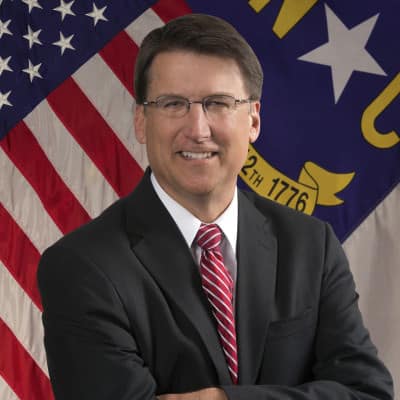

In response to the ad, McCrory’s campaign put out this response. In it, Ricky Diaz, Pat McCrory’s campaign spokesman, touts McCrory’s work on teacher pay.
“…after he took office, Governor McCrory passed the largest teacher pay raise in the country and raised it every year since. Now with average teacher pay increased to over $50,000 plus benefits this year, teacher pay in North Carolina is actually higher than Virginia’s when adjusted for cost of living.”
The campaign response goes on to say that “Governor McCrory is reversing the trend of neglect of education in North Carolina.”
McCrory’s budget proposal, released in April, sought to increase the average salary of teachers in North Carolina above $50,000. A statement on his official website (not his campaign website), connects the proposed pay increase to recruitment and retainment of teachers.
“Governor McCrory revealed that his budget will build on the substantial investments the state has made in teachers since 2013 to recruit and retain the best and the brightest educators to prepare our students for a successful future.”
Ultimately, the General Assembly passed — and McCrory signed — a budget compromise that Republican legislative leaders said would accomplish just what McCrory had proposed: bringing average teacher pay above $50,000. Some have raised doubts about that number, but Vanessa Jeter, director of Communications and Information Services at DPI, says the average salary of teachers can’t be calculated until DPI gets payroll data in December. An influx of low-experience or high-experience teachers could push that average up or down, since salary is so tied to experience in NC, she said.
Nevertheless, clearly McCrory believes that increasing teacher pay, something that has happened under his watch, is a valuable means of recruiting and retaining good teachers.
For the 2015-16 school year, the National Education Association’s latest estimates put North Carolina at 41st in the nation for teacher pay, though Republican legislative leaders and the governor say the pay increases will move the state up in the ranks.
In McCrory’s proposed budget, he also wanted to start a scholarship program to “attract new highly qualified math and science teachers,” providing 300 students scholarships to get education degrees at the state’s public universities and teach in state public schools. This provision ultimately didn’t make it into the budget compromise passed at the end of the General Assembly short session.
Read more about the budget compromise here.
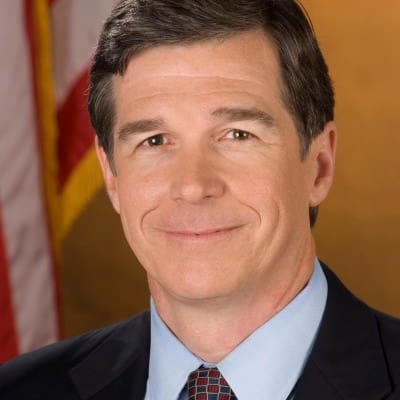

On his website, Cooper is critical of McCrory and the Republican led General Assembly, saying that they have left the state low in the rankings for teacher pay.
Cooper also ties the issue of teacher pay to the retainment of good teachers.
“Enough is enough. Teachers are working second jobs, leaving the profession or even exiting the state because we have a governor who has turned his back on them and disregarded their valuable service,” his website states.
The website goes on to talk about recruitment of teachers, saying that one way Cooper, as governor, “will value teachers” is by:
“Recruiting and training our best high school scholars for teaching careers through the Teacher Cadet Program and other successful programs like the NC Teaching Fellows that exchanged college tuition for a commitment to teach in North Carolina public schools.”
Lieutenant Governor
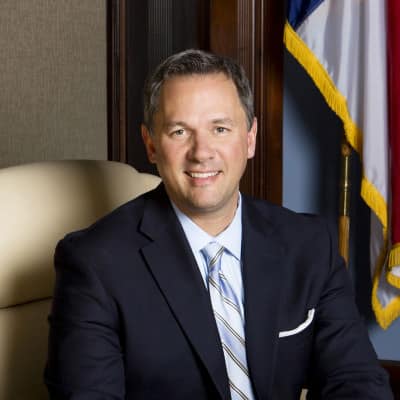

Lieutenant Governor Dan Forest, the Republican candidate for the office, said in a podcast interview with EducationNC that leaders at the state universities’ schools of education are saying that parents are talking their kids out of going into education.
“That’s a problem. So there is a significant perception problem there about education. So we got to fix that.”
He went on to say that excitement needs to be added back into the profession and that it really needs to be looked at as a profession.
“I think you have to get rid of some of the unnecessary mandates, and some of the unnecessary testing that is going on in the classroom so that teachers really feel the love of teaching again rather than having to do things like testing to a test or spending all their time filling out paperwork to meet mandates.”
Forest goes on to talk about potential policy changes in the upcoming long session of the General Assembly that could be helpful.
“We just rolled out the $500 tuition at three of our universities across the state now. We’ve talked about looking at that kind of profession that are short on employees now — like teaching — and say: ‘If you want to be a teacher in North Carolina, what about a $500 per semester tuition to go to an education school?'”
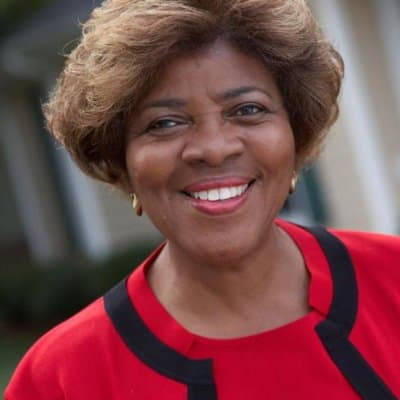

Linda Coleman, the Democratic candidate for Lieutenant Governor, addressed the shortage of teachers in our podcast with her by talking about what she thinks needs to be restored to the state’s public education system.
“First of all, we have to restore the budget cuts that have been made over the past five years in education. We got to restore the dignity and respect to teachers in the classroom. Bring their pay up to the national average. Bring back programs like the Teacher Academy, the Teaching Fellows Program. Provide ample resources and support to teachers in the classroom.”
She went on to talk about the lack of resources that teachers have today — discussing cuts to the numbers of teacher assistants in the state, a shortage in school resource officers and school nurses, and lack of textbooks.
“…if we want a school system where the kids perform well, you just have to provide the resources that will allow them to do that.”
Later, when asked how the state can retain good superintendents, principals and teachers, Coleman said that restoring dignity and respect to the education profession is one important step.
“…because right now they feel so beaten down because they have not been looked upon favorably by the Governor and the Republican led General Assembly.”
Superintendent of Public Instruction
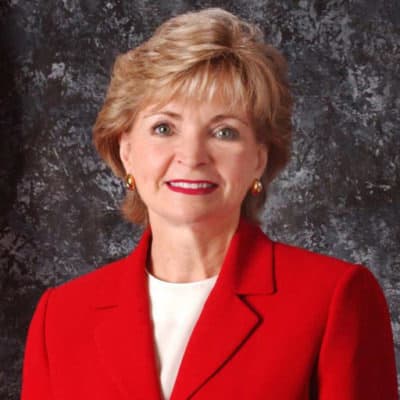

Superintendent of Public Instruction June Atkinson, the Democratic candidate for the position, led with teacher pay in our podcast with her when talking about what it takes to make sure we have an adequate supply of teachers. She talked about going before the General Assembly this year and suggesting a “comprehensive teacher compensation plan,” one that included a 10 percent pay bump for all teachers, paying teachers for extra duties and responsibilities, and strategies for attracting and keeping good teachers at schools that struggle with performance.
“I recommended that we raise the salaries of all teachers by 10 percent…If we don’t address all teacher salaries then any other comprehensive system will falter.”
She said she was pleased that the General Assembly instituted a raise for teachers — albeit one not quite as generous as she was suggesting — and said that legislators also took steps on addressing pay for teachers taking on extra duties and responsibilities.
If salaries are the first step, she said that resources are the next.
“The second thing we have to do is to make sure that teachers have the necessary resources in order to teach so that teachers will not have to take money out of their own pockets to pay for necessary resources.”
She said she remembered teaching in Charlotte-Mecklenburg schools and having an assignment where she had inadequate resources.
“What a challenge that was,” she said, adding that her experience is the same one so many teachers have and that education leaders must ensure teachers have the resources they need.
Finally, Atkinson said that there must be a “concerted effort” to make sure teachers are valued and respected.
“We have to replace the story that our schools are failing with the truth. And the truth is that our schools are doing better today than ever in the history of North Carolina when you use multiple measures.”
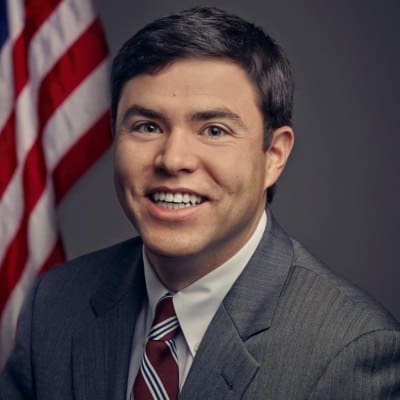

Mark Johnson, the Republican candidate for Superintendent, also talked about respect and pay in our podcast with him. He started by saying:
“Well let’s stop just saying we are going to treat teachers like professionals and let’s treat teachers like professionals.”
And then he went on to discuss pay, noting pay increases at the state level and from the Winston-Salem/ Forsyth County Schools Board of Education, of which he is a member. But, while pay is important, he said it’s not the only thing.
“There are other factors that go into this. One is professional development. I taught high school. I taught at a high school that was a very challenging place to teach. Professional development is an opportunity to go in, get really good skills, get really good materials, and also to collaborate with peers.”
He goes on to say that professional development can be invigorating done well. Done poorly, it can feel like a waste of time.
“You feel it was just something you had to do to check off the box, and then you still have to go and grade papers and prepare for testing and prepare for lesson plans, in addition to having to spend the time in a professional development that didn’t help you.”
He noted an anecdote he heard from a Guilford County teacher.
“She said a professional development program she went to, conducted by DPI (Department of Public Instruction), was so boring she wanted to pull her hair out. That’s not treating teachers like professionals.”
Johnson said giving teachers chances to grow professionally is also necessary to keep good teachers.
“If a teacher just wants to be a leader of their classroom that’s absolutely a path we want teachers to take. Take the professional development, become the best leader of your classroom because the number one thing students need in the school is a great teacher. Teachers can also have the opportunity to be leaders of their schools. If you want to be the leader of your subject team there should be an opportunity for that career growth; take on more responsibility, get more pay, and that will help other teachers train and get more prepared to be better teachers in their classrooms.”
He said these are things that his school board is working on.
Finally, he laid some of the blame for not keeping good teachers in NC at the door of DPI.
“As of March of this year, 2016, there was a teacher license backlog at DPI of over 7,000 teachers waiting for their teaching license. DPI charges teachers to give them that license and some teachers had to wait over six months to get that license.”
He went on to say that this backlog could drive some teachers from the state.
“The reason is because until a teacher gets their teacher license in hand, they don’t get the full pay and benefits that they should have.”
Philip Price, the Chief Financial Office of DPI, said in an e-mail that the backlog is down some. As of October 7, he said 6,319 applications were pending.
“While this is a large number, it is not unexpected for this time of the year,” he said, also noting that the department had processed 1,900 applications that week (the week of October 3rd) and received 991 new applications.
“We are reducing the pending pool,” Price said.
Read more about the candidates here



